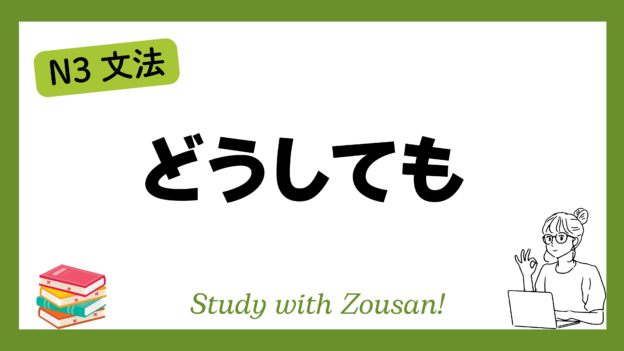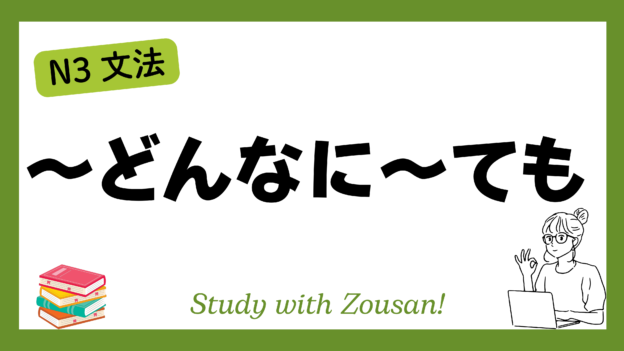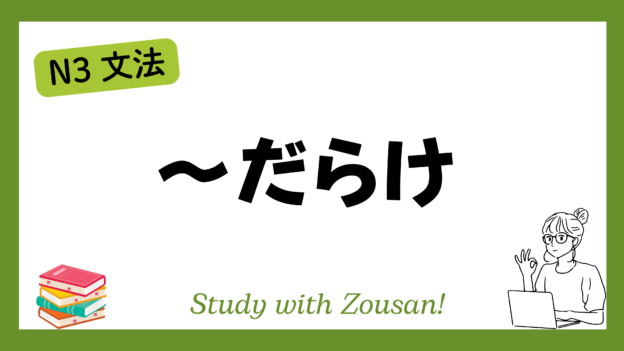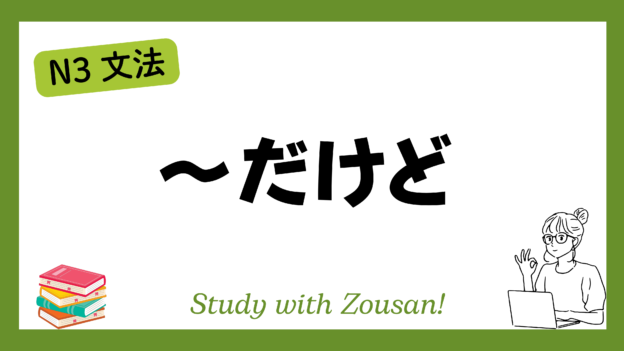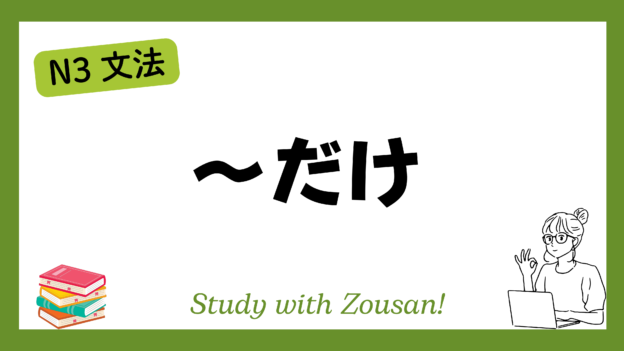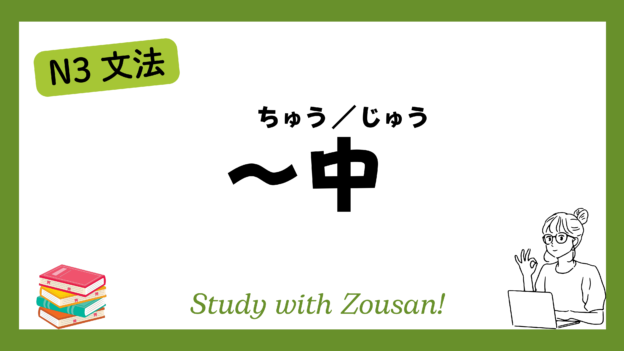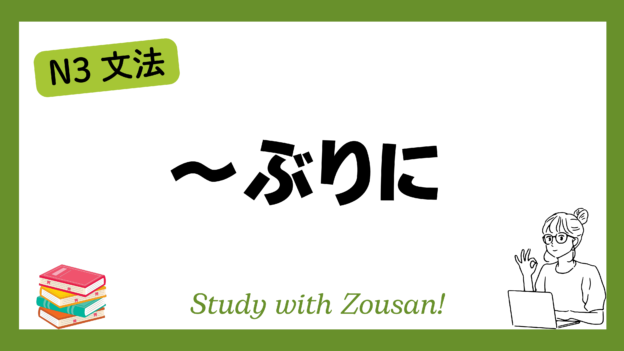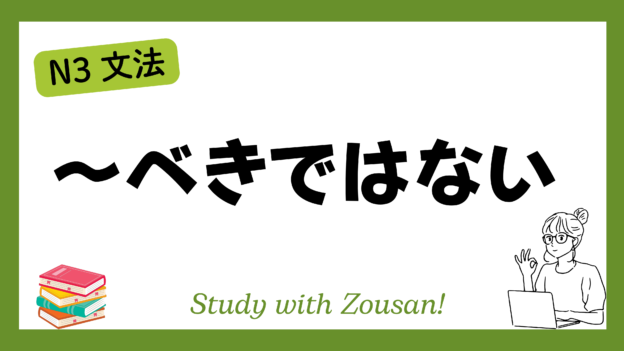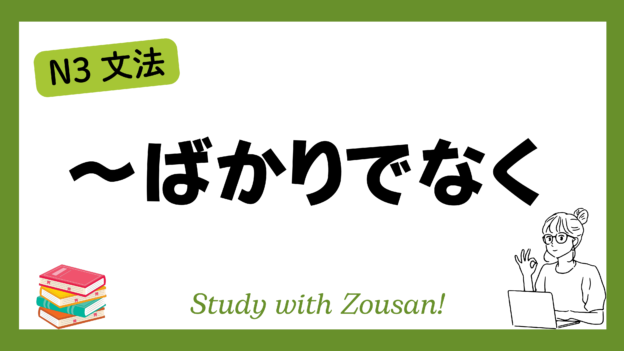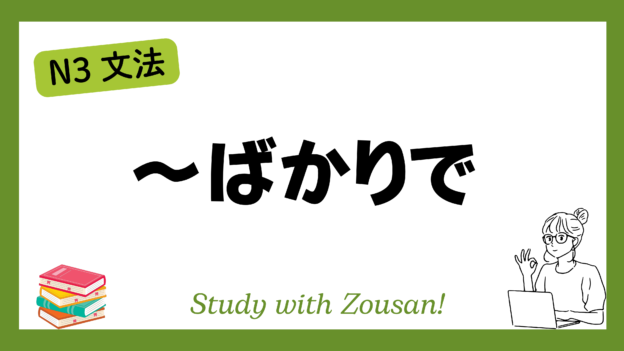Meaning: “No matter what”, “By all means”, “Absolutely”
“どうしても” is used to express a strong determination, an unavoidable necessity, or an inevitable situation. It can mean that something must be done or will happen, regardless of the difficulties or challenges. It can also indicate that something is simply unavoidable or necessary.
※Note: Depending on the context, “どうしても” can express either a positive sense of determination or a negative sense of inevitability.
Structure:
| どうしても + | phrase |
Example:
-
-
-
🌟 どうしても彼に会いたい。
(どうしても かれ に あいたい。)
I really want to see him, no matter what. -
🌟 どうしても理解できない。
(どうしても りかい できない。)
I just can’t understand it, no matter what. -
🌟 どうしてもこのプロジェクトを成功させたい。
(どうしても この プロジェクト を せいこう させたい。)
I absolutely want to make this project a success. -
🌟 どうしても忘れられない思い出。
(どうしても わすれられない おもいで。)
A memory that I just can’t forget. -
🌟 どうしても手伝わなければならない。
(どうしても てつだわなければ ならない。)
I absolutely must help, no matter what. -
🌟 どうしても行けなかった。
(どうしても いけなかった。)
I couldn’t go, no matter what I tried. -
🌟 どうしてもその映画を見たかった。
(どうしても その えいが を みたかった。)
I really wanted to see that movie, no matter what. -
🌟 どうしても勝ちたい試合だ。
(どうしても かちたい しあい だ。)
This is a match I absolutely want to win. -
🌟 どうしてもやらなければならない仕事。
(どうしても やらなければ ならない しごと。)
It’s a job that absolutely has to be done. -
🌟 どうしても諦めたくない。
(どうしても あきらめたくない。)
I don’t want to give up, no matter what.
-
-


